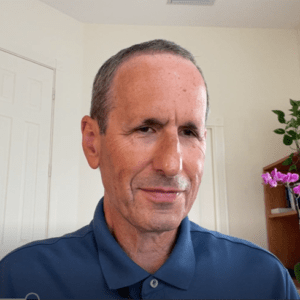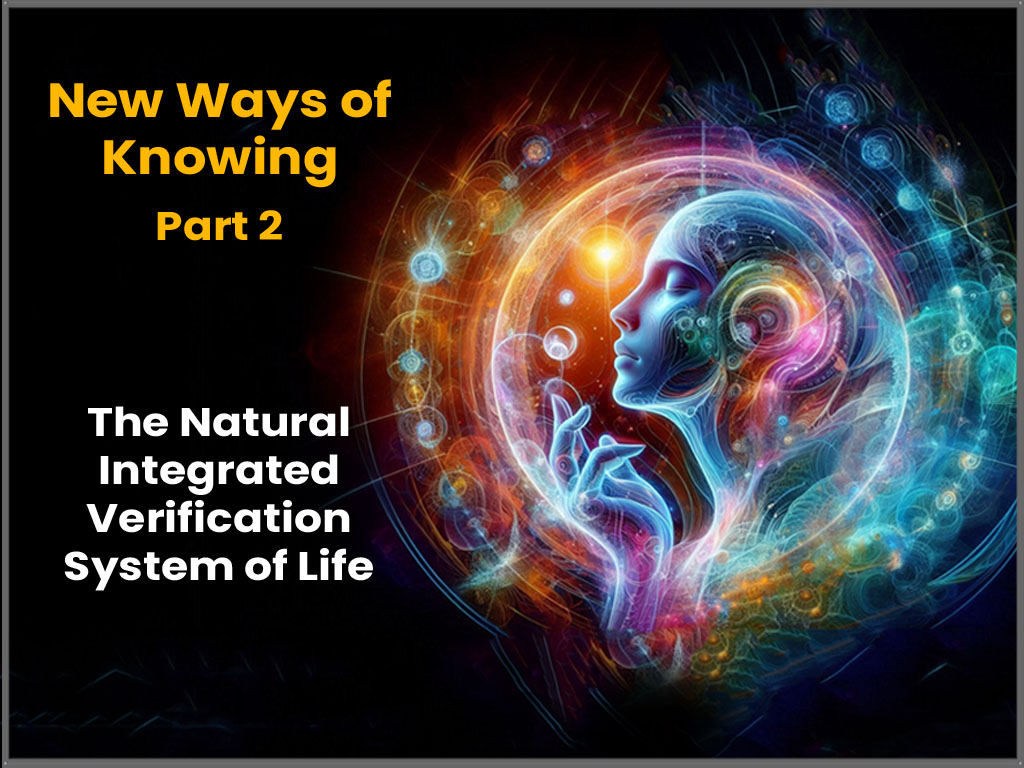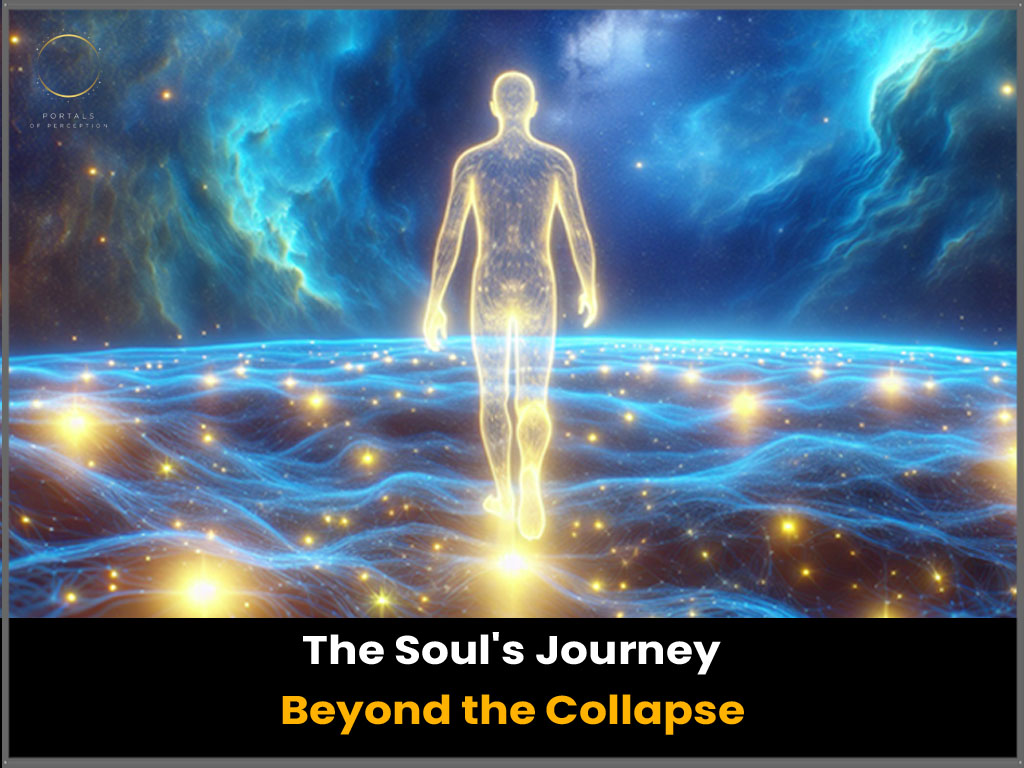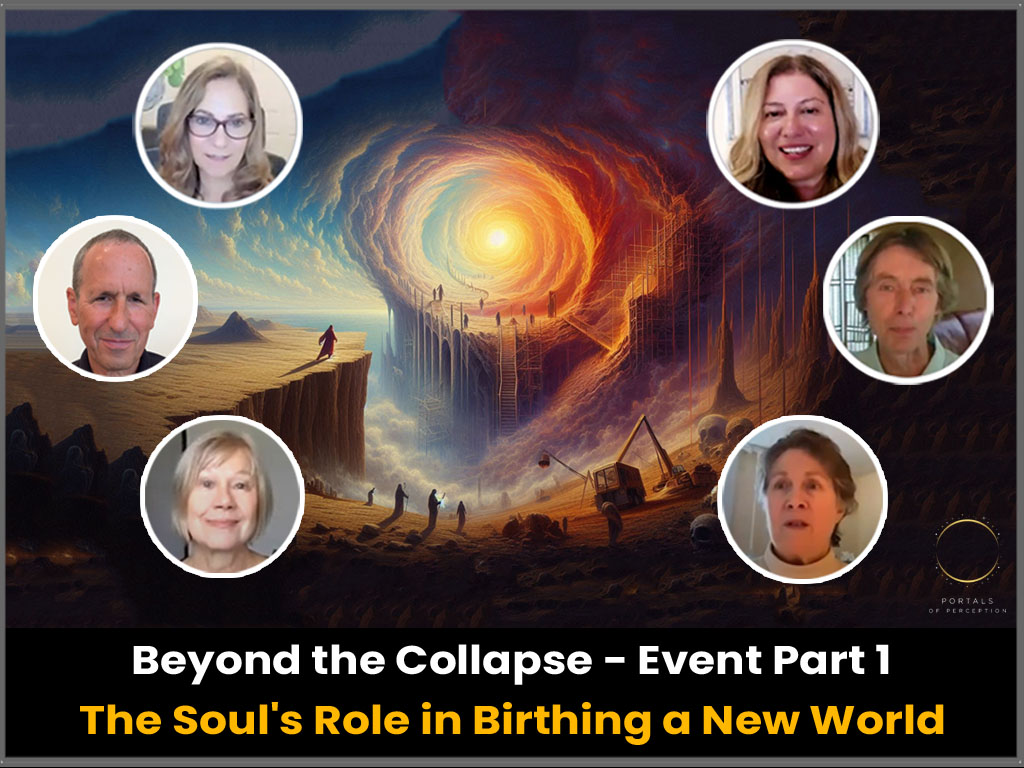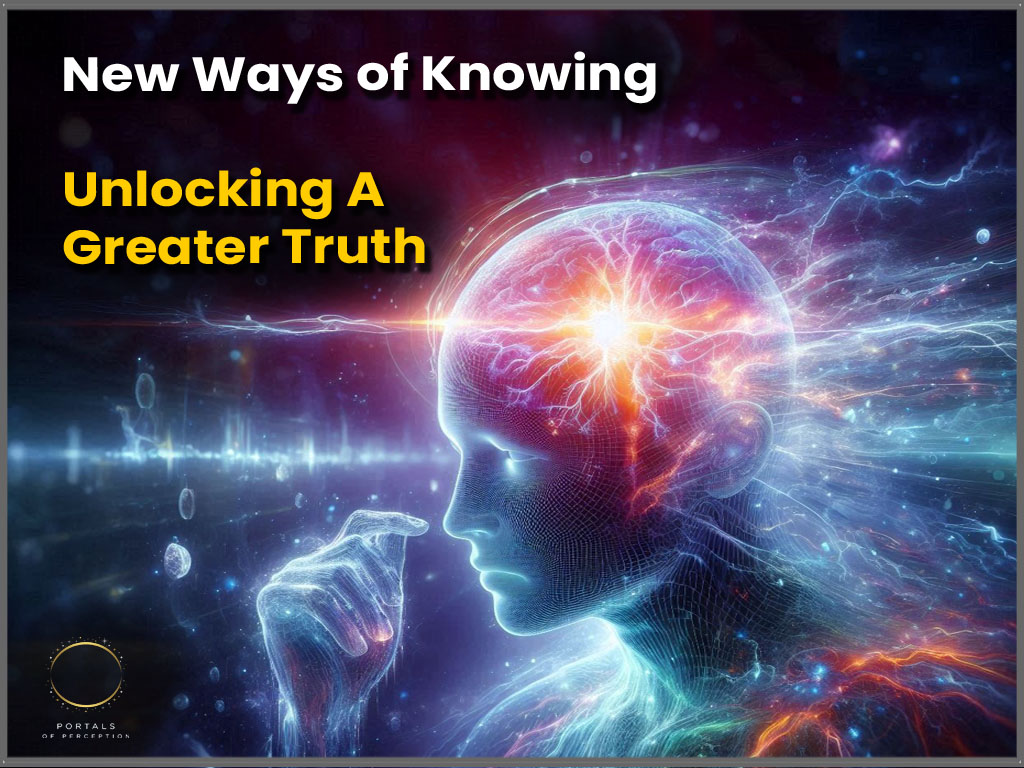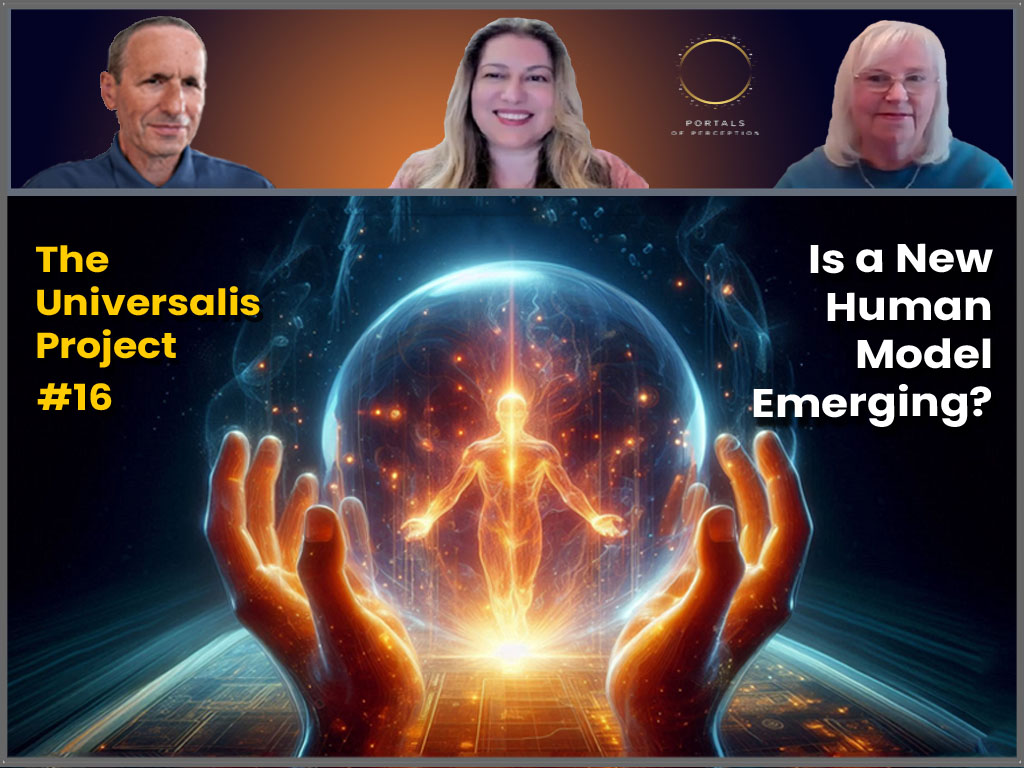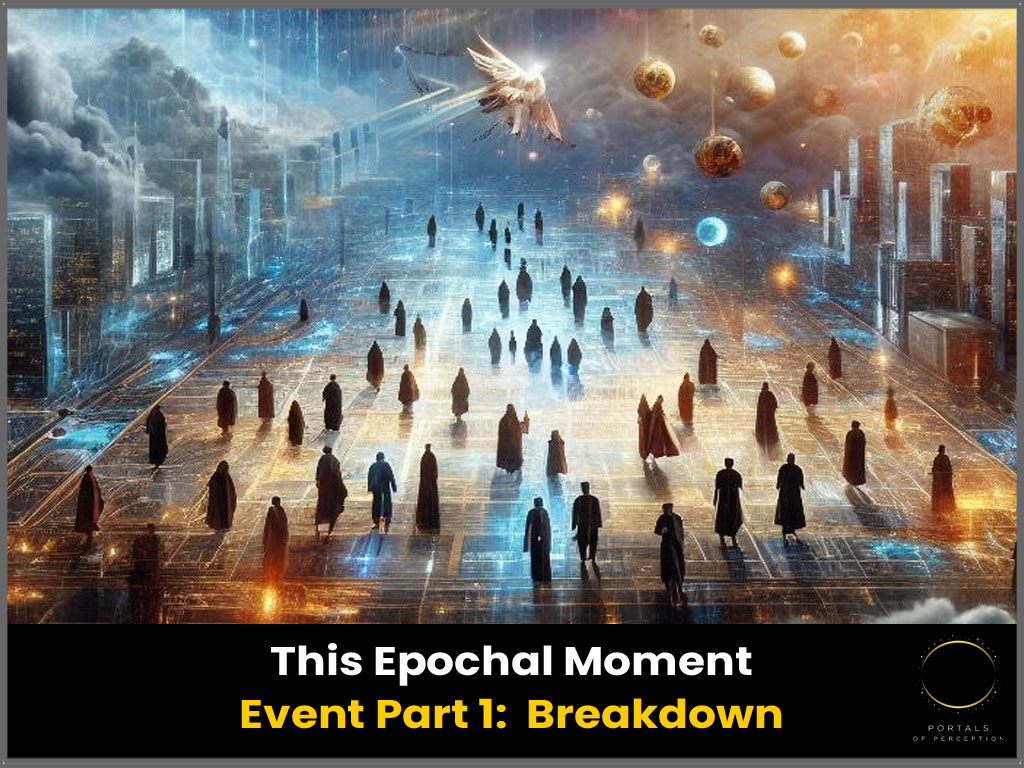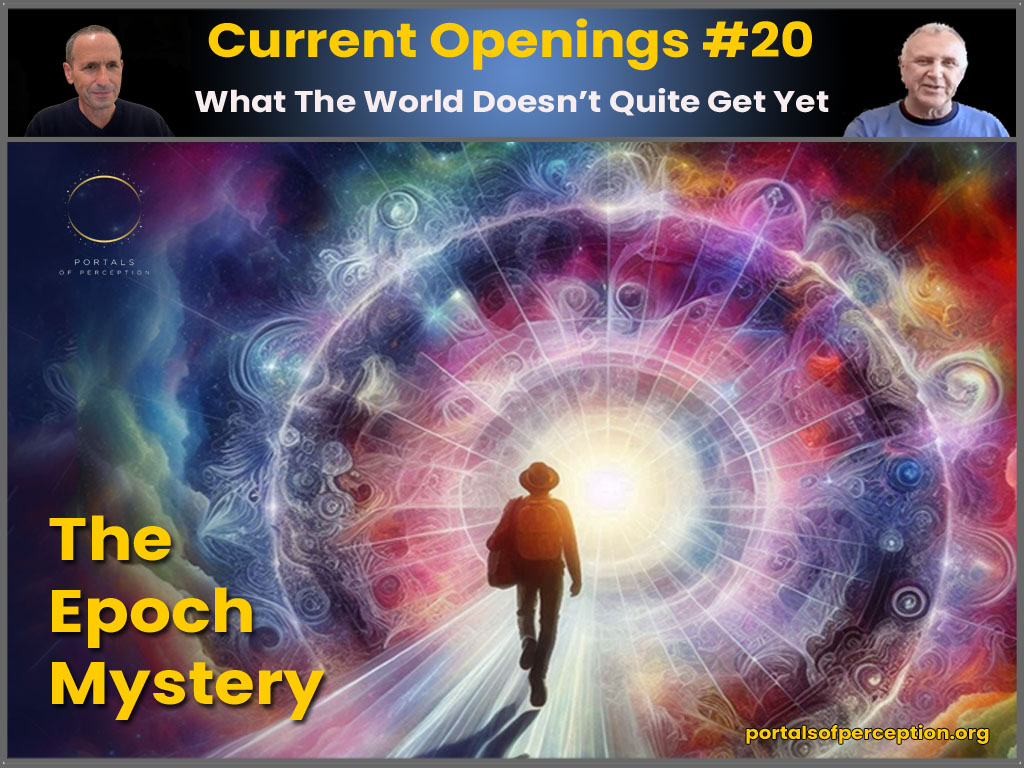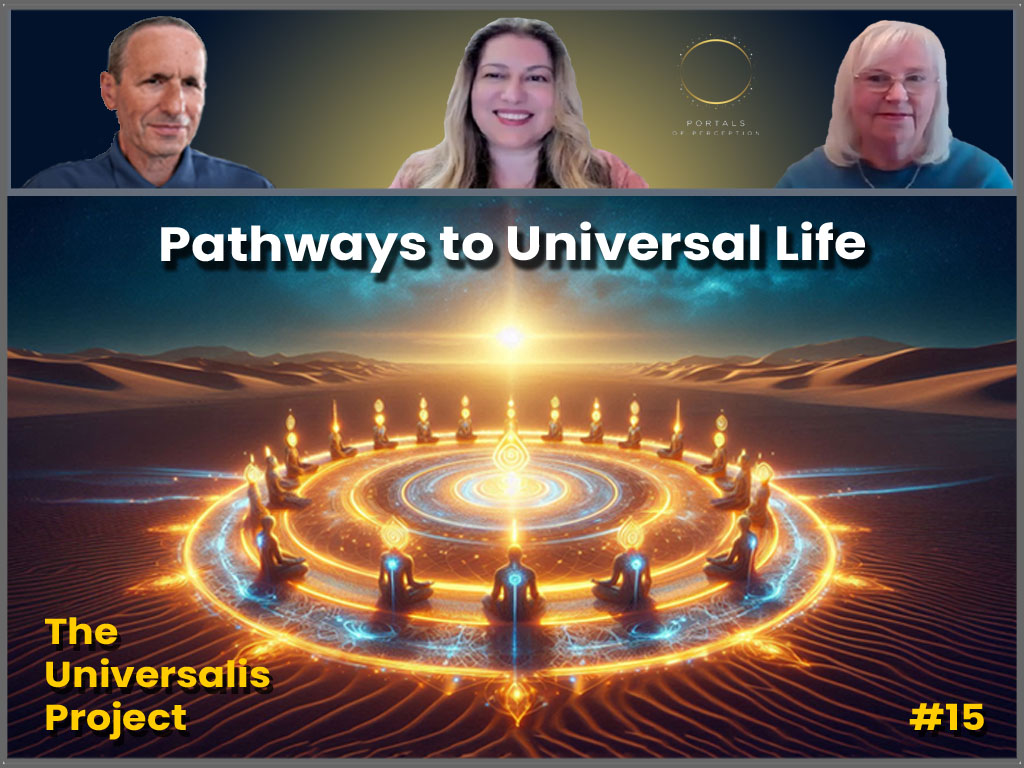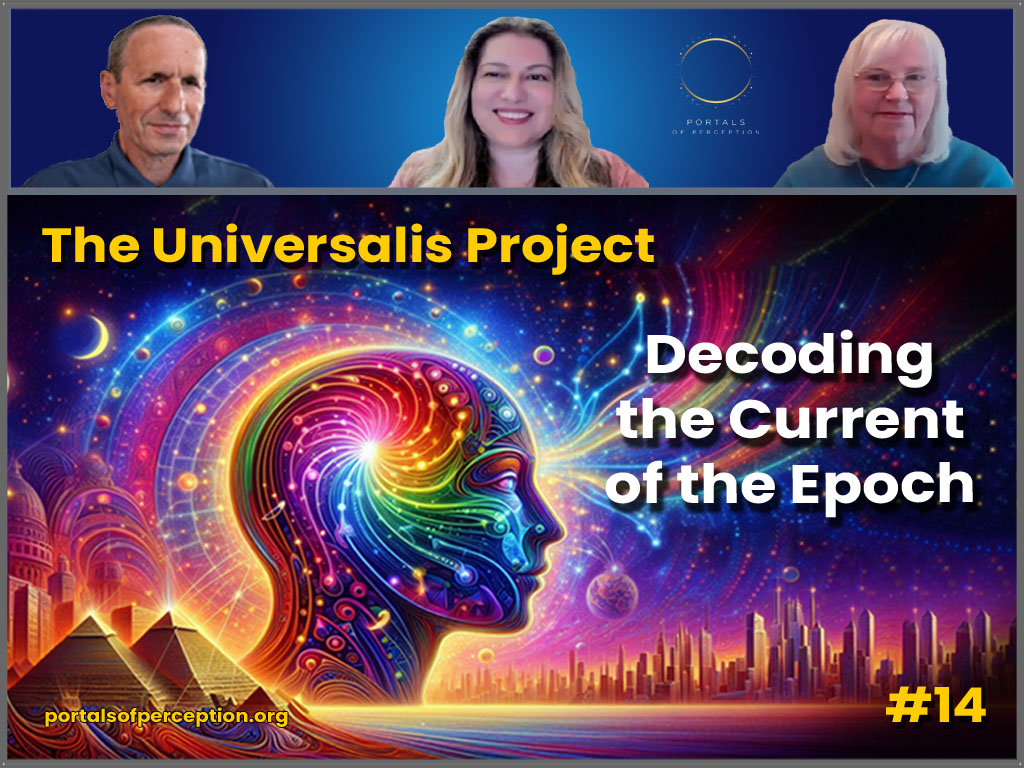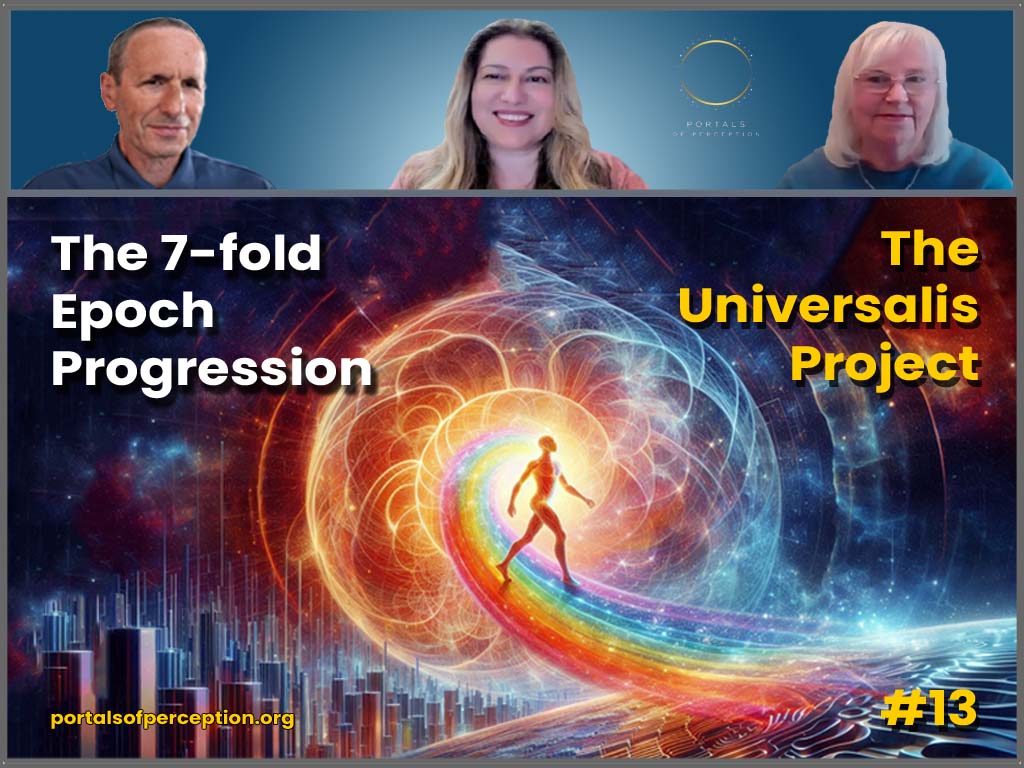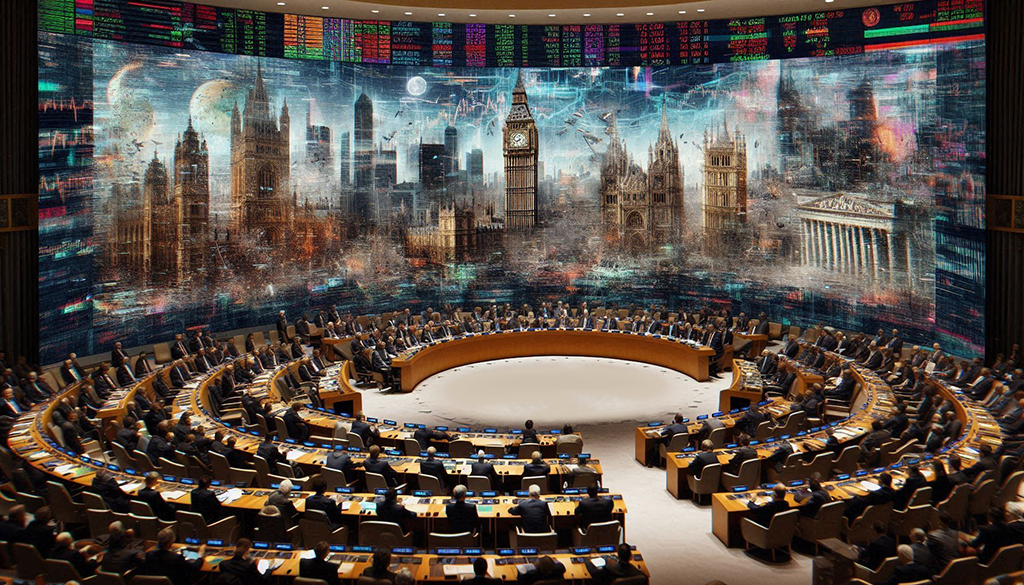
Mighty, seemingly unbreakable civilizations rose and fell. Historians of all times and futurists try to trace the signs of decline and predict the end of an era. Can we predict the collapse of a civilization, just as Cassandra predicted the end of the Trojans and the Greek historian Polybius foresaw the demise of the Roman Empire some 600 years before it fell? Can we see the warning lights when as a society we are running at an ever-increasing speed towards a cliff? Can we choose to avert civilizational collapse by redirecting and engendering a deep renewal?
Just like a series of tremors prior to an earthquake, there can be many signs of an imminent collapse. What is happening in the world today seems startling. The operating system that enabled modern life as we know it appears to be crashing. The key questions now are: Is this an irreversible slide into continual degradation that will ultimately lead to civilization’s end? Or is there an evolutionary path to reboot and regeneration? If so, how would we spot the signs of such renewal?
This is Aviv Shahar writing on behalf of the Portals team with a deeper look into the underlying influences shaping the ecological, economic and cultural crises gripping much of humanity and the planet. It seems to a lot of people that this time of profound change is something more than short-term predictable corrections in various global systems we might expect.
In the conversation Homo Universalis Project #10: Why the World is Breaking Down, I am joined by Portals friends Karen Heney and Kyriaki Nikandrou as we seek to appreciate this epochal moment. The conversation centers on diagnosing why the modern Blue Operating System is now crumbling.
This conversation took place in September 2023, and coincided with various world events and turmoil, including the war in Ukraine, and the constitutional crisis in Israel concerning the separation of powers. Much of what we explore here appears even more pertinent now a year later.
- What is going on in the world?
- Why does it feel in many places as though the epoch is regressing?
- What could be the evolutionary reason and purpose in what is now unfolding?
These questions are central to the Portals project. To be able to approach these inquiries from a vantage point different from the frame of mind that created the problems humanity is facing now, we need to start by better appreciating the function of the Blue fractal in the epochal progression. As we describe in Universalis conversations 5, 6, and 7, in the Epochal evolutionary story, each of the sevenfold color spectrum represents a pattern, bringing emerging potencies and possibilities that influence human response and activate capacities latent in the human; every fractal corrects or balances the fractal before.
Red represents an originating point and thus carries a singular nature to it. Orange comes to expand the range. Yellow reorchestrates and realigns the expanded territory with a unifying principle. Green then offers a regenerative uplift and a sense of rejuvenation.
In this evolutionary trace, Blue holds a special function. Nothing in our civilization, in our modern life, in our cities, works without Blue. For example, if we think of a city, or of an airport terminal, we easily come to the conclusion that these cannot function without Blue.
Blue guarantees energy supply, food distribution, clean sewage, safe driving on the freeway, safety that your home was built to code. Everything about modern life was made possible and programmed by Blue coordination and engineering. We are describing here the Blue fractal as the supportive ways, means and infrastructure, enabling coordination and cooperation, including any unwritten code people support, like standing in line.
This way of decoding the evolutionary trace offers a lens different from narratives that describe definitive development stages, such as the transition through prehistoric, ancient, medieval, early modern, modern and contemporary periods. The sevenfold epoch insight decodes the seven fractals as they emerge through each of these development stages.
One example is in seeing the expansionary Orange impulse as it plays out in the ancient world in the expansion of the Roman Empire, a pattern that reasserts itself again through the rise of the mercantilist expansion of the British Empire.
Blue is present early in tribal societies and then in the ancient civilizations as they each responded to coordination and regulation needs. Our focus here is on the modern Blue Operating System, which arose through the Enlightenment in the 17th-18th centuries, and how and why it is reaching now a reckoning moment of implosion or transition.
What did the Blue architecture enable?
The Blue Operating System became the foundation of the free-market economy and liberal democracies. The Enlightenment brought political modernization to the West, introduced democratic values and institutions, and the rise of the public sphere, where open and accessible forms of urban public space facilitated social innovation, and the circulation of ideas through the explosion of print culture.
With the achievements of the modern project, it also brought intricate problems that are now driving humanity and the planet to the brink of global systemic breakdown.
What did the modern Blue move come to solve?
Possibly, the Blue impulse came to do away with subjugation, unresolved conflicts, disorder, injustice, superstition, inequality, magical thinking, cruelty, despotic oppression, slavery, disregard for life, industrial poison, and much more modernity attempted to leave behind.
Why is the Blue Operating System breaking down?
This is the conundrum we are seeking to diagnose. When a plane crashes, investigators seek to identify the root causes by a thorough examination of a possible malfunction in the systems and processes designed to secure the safety of the flight. To do that, they need to have a deep knowledge of all the aircraft systems, the environmental conditions, and all other supportive operations involved. Similarly, in order to investigate where the bugs are in the Blue Operating System, we need to understand the component parts that constitute a healthy Blue system, functioning in an as was meant to be way.
To deepen our understanding and become diagnostic about why the Blue architecture is breaking down as we have been moving into the Indigo merging and transference of new capacities and capabilities, and into the Violet phase shift, we are developing a loom of the Blue operating system layers in its natural as it was meant to be intent.
Then we can inquire about the Indigo-Violet intensification underway and openly search to find emergent signs of redemptive renewal.
Find out more by listening to the conversation or reading the attached writing, which evolved from the transcript of the conversation and includes many additional insights. We also explore other steps we can take to develop deeper understanding and intelligence about facing these challenging times in Inner Conclave Consciousness with Portals friend Jeff Vander Clute.
Why is the Blue Operating System Breaking Down?
There are three spaces where we experience and express living: the economic space, the cultural space and the political space.
The economic space is where we generate opportunity and growth to serve individual and collective needs. It goes all the way back to bartering and even earlier to tribal economies where resource management followed the seasons. As the world emerged from the Middle Ages and after the Enlightenment it evolved complex economic and trading systems. The economic space aims to address firstly survival needs and then facilitate and support all other, more sophisticated needs, and produce well-being and thriving possibilities.
The cultural space addresses our natural desire to express beauty, to bring our beliefs and aspirations to life through art and religion, and to find ways to be educated and entertained.
The political space is where we negotiate and find agreements about how we will govern ourselves, facilitate justice, fairness and wellbeing, and solve conflicts when we are together in communities and in any group of more than three people.
The compelling portent of the Blue fractal emerged with the realization that these three spaces were meant to arise and evolve independent of each other, to be mutually supportive, reciprocal and liberating. That was the Blue ethos.
However, through the 19th and the 20th centuries and into the 21st century, we’ve seen through cycles of concentration of power that the three social activity spaces become increasingly more captured and locked in two ways:
- by sclerotic bureaucratic weight.
- by the unproportional influence of powerful economic interests that were able to manipulate the political space, and by doing so, also capture the cultural space.
The three spaces optimally evolve by being facilitated through their natural free arising. In many countries, these were captured in ways that subverted and stifled natural development.
One layer deeper in the Blue Operating System emerged the three branches of government power, designed to enable the three spaces of living experience and protect their free expression.
The Blue ethos of promoting the welfare of all people initially emerged in the ancient world. It was consolidated and activated through the Age of Reason in the 18th century, where the Blue framework became foundational for the modern project. The economic, cultural and political spaces of expression were supported by democratic free-market systems and by the establishment of three branches of government:
- The legislative branch makes the laws, where the primary inquiry is “What is just and effective?”
- The executive branch carries out the laws, where the main inquiry is “What is just and serves the needs?”
- The judicial branch evaluates the laws, where the primary inquiry is “What is just and fair?”

An earlier formative moment of the Blue fractal emerged with the Magna Carta. The Blue impulse continued to work through the Epoch, enabling diverging interests, conflicting needs, opposing dissidents, freedom fighters and diverse groups to come together. The modern Blue impulse emerged in America with the Constitutional Convention securing the separation of powers, giving the legislative power to the Congress, the executive power to the President, and the judicial power to the Supreme Court.
The original framing arose with Montesquieu, the 18th century philosopher pioneering the doctrine of the separation of powers. This Blue Epoch idea caught on in many countries through the 19th century and came to its prime as the modern project evolved into the 20th century. It now faces a growing challenge, which we are here seeking to decode and appreciate.
In the US the threefold government system is challenged in several ways. Economic interests have garnered so much power that they are able through lobbying to subvert the legislative process. This has been furthered by the speed and sophistication of technology moving faster than regulatory capacities of the government can evolve. Coinciding with these technological developments — and creating a malicious feedback loop and a perfect storm — are how these dynamics power the culture wars that polarized America and hijacked the legislative and the judicial functions: they have been rendered no longer effective in their capacity to serve the people. The Blue system that emerged to support the welfare of all people began to attack itself in its sclerotic and autoimmune syndrome.
The crises in the US, UK, several countries in Europe, Israel, India and in Brazil and Argentina, are each unique. At the same time, they exhibit the unraveling of the Blue system of effective separation of powers as a way to protect and support the three spaces of living expression. China and Russia each represent a unique case where the modern Blue system never fully ripened.
In the EU, the Brussels administration is itself a contradiction; there isn’t a true anchor of the governing power in genuine economic, political and cultural processes. It’s an administration that is separated from the larger network of economic and cultural interests. This in part catalyzed the polarization which led to the Brexit drama.
Let us now go one layer deeper in the Blue Operating System and ask:
- What is the ethos that shaped the idea of the three branches of government and the separation of powers in facilitating free economic, political and cultural expressions?
- What ideals and values molded this philosophy, which enabled the establishment of large-scale governments that could manage and operate a country?
Before the modern Blue project of establishing countries and free-market economies, the earlier Blue system involved city-states. Running a large country without an empire-like army was difficult. Continuous territorial wars in Europe led to a seminal Blue moment in the Peace of Westphalia, signed in 1648. It established the sovereignty principle that each state has exclusive authority over its territory and domestic affairs. It established the principle that states are equal in international law and should not interfere in each other's domestic affairs. The Westphalian system was an important Blue achievement that enabled the development of Europe. Later, the sovereignty principle became foundational for the establishment of the United Nations, one of the central institutions of the modern Blue order. These principles and institutions are now in crisis. But again, what were the ideas and values that shaped this Blue philosophy in governance and living?
They were based on the Ethics of the Enlightenment, shaped by the study of what is good and evil — where the primary inquiry was “What is good?” — and on morals and values, corresponding with the study of what is right and wrong, where the main inquiry was “What is right?”
These two pillars, morals and ethics, fashioned the infrastructure of the modern Blue Operating System, including ideals such as the rule of law, human rights, individual liberty, progress, toleration, constitutional government, the separation of church and state, free speech and the freedom of expression.
The legal system with the principles of equality before the law, the right to assemble, the presumption of innocence, the rights of the victims and more, became, perhaps, the most prevalent element of the Blue framework. As people learned to trust that the system will take care of them and their interests, they unleashed creativity, developed businesses, and the capacities of free-market economies were unlocked, all enabling functional democracies to flourish.

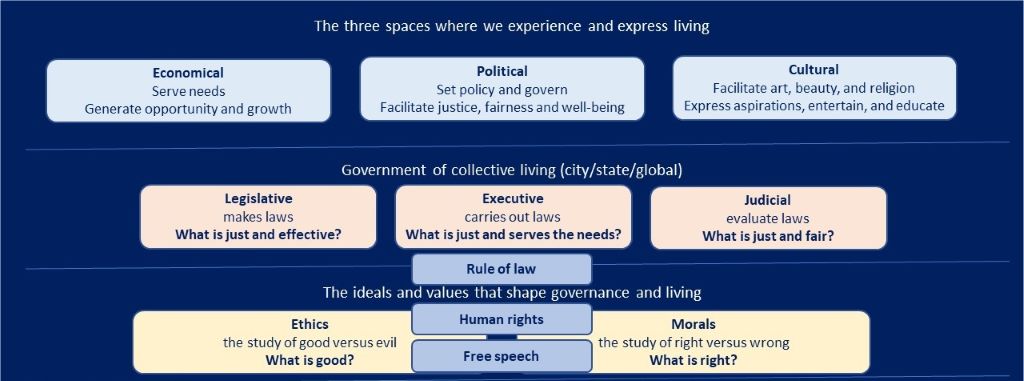
How was wealth managed and protected before trust in the rule of law enabled the development of modern banking standards and systems?
Preceding the rise of modern banking, exchanges and financial institutions in Europe and the US were bloodline power structures. The Peruzzi and Bardi families, and then the House of Medici, heralded the development of the modern financial system to manage wealth and allocate funds.
The Blue Operating System, its separation of powers and effective legal system, shaped by the ethics and morals of the Enlightenment, enabled the rise of free, democratic markets and economies and the modern financial system. When the system works well, each element is freely arising and reciprocates the larger ecosystem. We will shortly reflect on what brought the Blue ecosystem to a breaking point.
Inquiring one layer deeper inside the operating system, we ask what are the sources, perceptions and philosophies that underlie and shape ethics, morals and values?
With the Age of Reason, ethics, morals and values found their source and guiding compass in the metaphysics and epistemology that inspired the rise of the Enlightenment.
Metaphysics is the study of the nature of being and of reality, where the main inquiry is “What is real?” Epistemology is the study of knowledge, where the primary inquiry is “What is true?”
Earlier in the epoch, the Axial Age activated a Yellow fractal which was accompanied by the birth of the major religions that profoundly realigned our understanding of reality. The renowned Ancient Greek philosophers as Plato with his theory of the two worlds, and Eastern sages, including the Buddha, delved deeply into the nature of existence, the pursuit of truth, and the potential of human knowledge. They laid the groundwork for philosophical and epistemological inquiries that explored how we perceive and comprehend the world around us.
The Renaissance and the Enlightenment ushered in a profound metaphysical and epistemological revolution, fundamentally altering beliefs about reality and truth. These transformative movements prompted a reevaluation of established norms, leading to fundamental changes in values, ethics, and morals across society. The Renaissance, with its emphasis on humanism and individual potential, liberated a Green fractal and encouraged a renewed exploration of classical knowledge and the natural world, fostering a spirit of inquiry and creativity.
The Enlightenment activated a Blue fractal as it emphasized reason, scientific inquiry, and the idea of progress, challenging traditional authority and dogma. This shift enabled people to question previously accepted truths, fostering a culture that valued rational thought and empirical evidence. The transformations that emerged during these periods reshaped individual perspectives and formed the foundation for modern concepts of justice, human rights, and ethical reasoning; they influenced society in ways that continue to resonate into the modern world.
The Scientific Revolution of the 16th and 17th centuries transformed how we perceived our place in the cosmos. Pioneering thinkers, led by Copernicus, Galileo, and Newton opened the way for a new framework of understanding the universe, one firmly rooted in natural laws. Their meticulous observations and measurements of celestial and planetary movements advanced the field of astronomy and fostered critical and empirical thinking. This intellectual shift paved the way for the transition from a predominantly religious worldview to a secular one, where ideas and beliefs could no longer be accepted solely on faith. As faith gave way to reliance on reason, the rise of rational thought brought a newfound conviction in humanity’s ability to manipulate the environment and the universe. This emerging confidence led to remarkable advancements in science and technology, encouraging the pursuit of solutions to a wide array of emerging challenges and fundamentally altering humanity’s approach to understanding and interacting with the world. Through this transformative period, the quest for knowledge became not just a means of understanding the cosmos but also a catalyst for progress and innovation in all aspects of life.

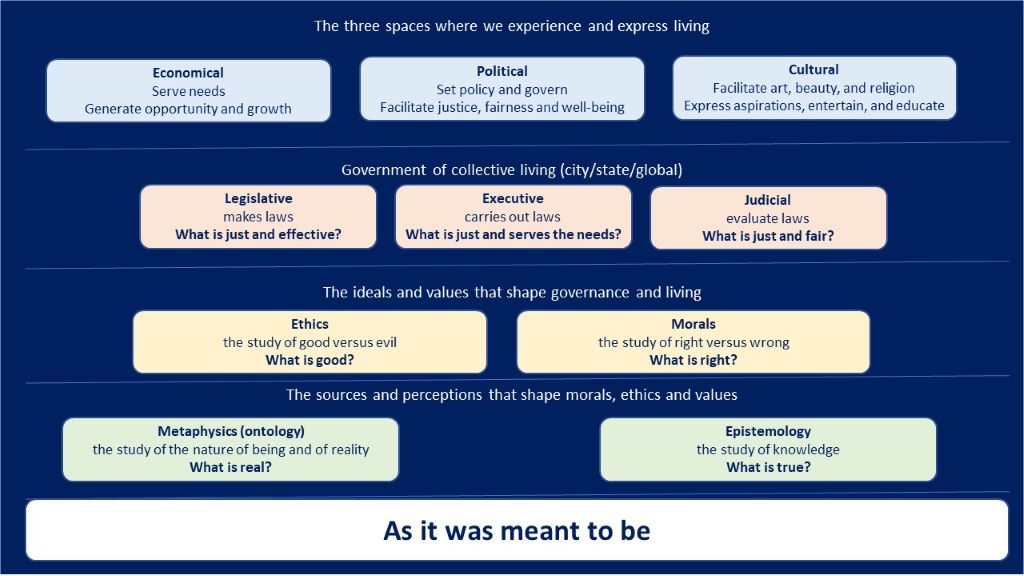
At this point, we may ask: Where is the bug in the Blue Operating System? Why is it breaking down?
The rise of the Blue architecture, its philosophy, metaphysics and epistemology, ethics and morals, and its ideas of the separation of powers, the rule of law, freedom of expression, the separation of church and state, and representative government, were enabled and cultivated by thought leadership about what is real and true and what is right and wrong — thought leadership developed by intellectual, political, cultural and economic elites. The professional elite class emerged from the Enlightenment and rose to prominence through the 19th and into the 20th century. It came to fill the void created by the undoing of the Feudal pyramid system and its barons through the 15th and 16th centuries.
The professional elite emerged in the institutions and universities that led the Enlightenment. Inspired by the ethos of the greater good, which supplanted the chivalry code and Christian ideals that shaped the moral code of the Middle Ages, the professional elites prided themselves on a rational utilitarian approach. Rational utilitarianism of the greater good guided the Blue ethos that an action is morally right when it leads to more good than harm and increases overall well-being and happiness. In its broader framing it included the well-being of humanity by addressing all social and economic challenges. When one evolutionary phase corrects the fallacies of the previous phase, it tends to overshoot and create its own fault lines. Indeed, rational utilitarianism included several blind spots.
What are the blind spots in the Blue framework? First, it excluded the traditional belief system and abandoned virtues of chivalry. Traditional sentiments and beliefs were seen to be outdated and were supplanted by a mechanistic rational view of the world and of human life. In the process it left us disenchanted and bereft of the place taken earlier by God and religion. The rise of the industrial revolution unleashed the extractive economic miracle of cheap oil, and then the financialization of the economy unlocked the invention of money-on-money return, which altered the incentives.
Blind spots of utilitarianism, distorting incentive structures and the fault lines they created, the corrupting nature of large-scale power, and ghosts of the aristocracy and the barons, permeated the professional elite class and sowed the obsolescence seeds that have now hijacked the Blue Operating System.
To address what it saw as primitive inveiglement tainting human nature and conduct, the modern system wanted to apply rationality to guide the doctrine of checks and balances. In its establishment, it gave rise to a growing bureaucracy that became heavier and sclerotic with time. What initially was inspired by an ethos of service gave way to a corrupt self-serving elite, whose job was to preserve the systems that protect the rules, forgetting they are meant to serve the thriving of people and society.
The modern Blue Operating System became an extraordinary success in its capacity to manage, govern, police and regulate modern life and living, all while sowing its own breakdown and demise. As the 20th century approached its conclusion and with the beginning of the 21st century, the Blue modern architecture that was designed to provide well-being for all stopped working and delivering its promise. It became increasingly more sclerotic and corrupt and was captured to serve the interests of the very powerful.
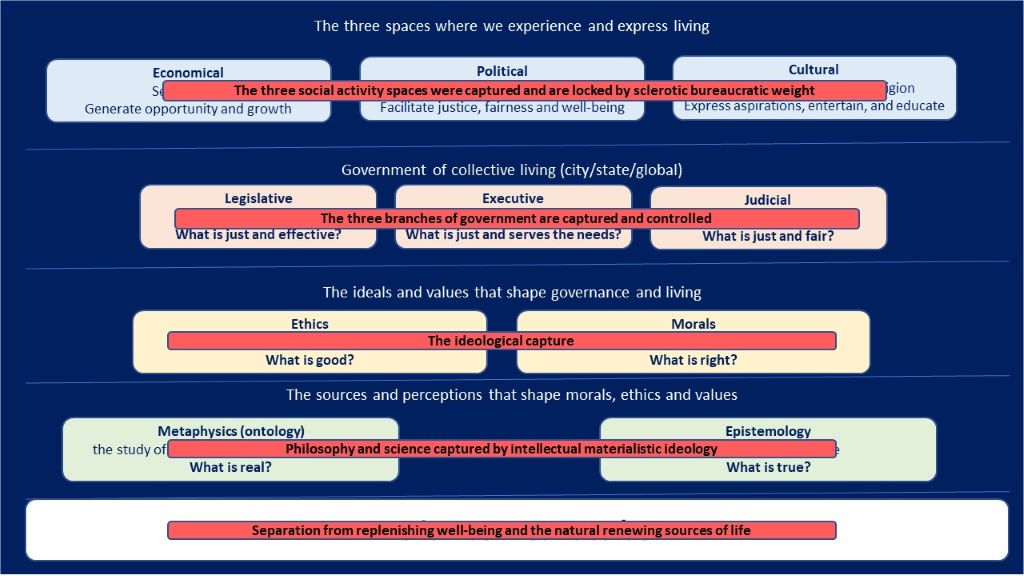
The economic, political and cultural elites shaped the Blue framework by constructing it into a technocratic, scientifically managed system. It viewed humans as part of a big machine the elites get to mold and engineer.
By the last decade of the 20th century, throughout the world there were groups of people with needs, ideas, beliefs, passions and natural inclinations who increasingly felt that they could not express their desires and beliefs inside the system and sought to rebel against it, hoping to change it. They mobilized pushback against globalization and against all global institutions that became the face of the Blue Operating System. The Tea Party, the Occupy Movement, and the Brexit movement were some of the tremors signaling the modern Blue project had entered its undoing.
The modern project enabled so much, but it developed its own blind spots and bugs and was now reaching an obsolescence breakdown, leading to the collapse we are now experiencing. At the deepest level, the system capture and the bureaucratic weight brought separation from replenishing sources, well-being and natural renewing energies, without which the cultural, social, political and economic spaces begin to die.
In recent decades, increasingly, the way we perceive life and what we know has been captured by socially constructed beliefs that are separated from nature. When our perspectives and allegiances are constructed in a bubble separated from life and nature, we begin to believe we can make up anything we choose and claim it is the truth about how the world operates. We then lose touch with what is real (the ontology that shapes reality) and with what is true (epistemology rooted in nature).
As the postmodern impulse looked to deconstruct and dismantle the Blue framework, it separated itself from being rooted in what is real and what is true, and the full Blue stack and its operations lost its resilient resourcefulness and got seized and locked.
The epistemological and metaphysical primary capture vectors presented a potent polarity. On one side was materialistic reductionist worldview, which in the name of objectivism removed access to interior dimensions of experience and their connective and creative powers. Power was exteriorized to new instruments and technological developments, that became the criteria for what is real and true. On the other side, the separation from renewing sources was driven by the postmodern social construction belief that reality is purely subjective, and thus each person can decide and make up what is real; that you can be anything you like, defy gravity, natural laws and the built-in design of the human model.
The innate desire for individuality and uniqueness shifted the focus of attention from the cultivation of inner virtues and spiritual values to more external and material forms, possessions and characteristics. So, in this postmodern frame of mind, you can wake up in the morning and decide you are a bird, but no matter how much you may flap your arms you can never fly physically without the help of any apparatus; gravity will simply defy you.
The paradox of believing that only what is observed under a microscope is objectively true and real and the fad in vogue believing that everything is subjective, created a schism that is breaking down the scaffolds holding the logic of our Blue epistemology and ontology.
What could be the function of regressive cycles to earlier stages of evolution?
Regressive cycles naturally arise when a forward evolutionary move has left a “system bug” — a combinatory deficiency that prevents further development and evolution.
As Indigo–Violet natures are emerging, the Blue impulse is experiencing a series of regressive cycles. As long as they do not produce a catastrophic failure that eliminates regenerative capacities, regressive cycles have an evolutionary function in that they offer remedial, renewal, updating and integration opportunities.
The Blue advance left behind interior and spiritual dimensions of human life that were disowned. We thought we were fully “rational.” (We are, but in a different rather than a reductionist way, which is why “rational” is in quotes.) It was part of the myth of the mid-20th century that glorified “homo economicus,” which saw the meaning of life in how each unit contributes to a growing economy. In our praise of rationality and of being rational participants in the economic system, we largely left outside of the equation the “feeling life”, spiritual dimensions, communal expressions, creative communion and artistic capacities, love, and intuitive knowing.
A regressive cycle when used productively creates an opportunity to reintegrate blind spots, what was left behind, what was not metabolized and was disowned. The Indigo and Violet fractals are showing up as the space and ecology inside of which the epoch can do its remedial update as increasing connectivity and conductivity are being unleashed.
It involves messy, painful, even tormenting and in some cases cataclysmically difficult developments, which lead us to a big question: Are we on a trajectory that is self-eliminating for humanity, or on a path to redemptive reemergence?
Underlying the meta-crisis of several converging civilizational breakdowns is the collapse of the Blue framework. These ongoing crises require us to coordinate at a higher level just as we have lost the capacity to do so. The very institutions designed to facilitate global coordination have lost their resilience and credibility. This is the predicament of this epochal moment. We need greater coordination capacity, just when we seem to have lost trust in the global institutions meant to lead and facilitate coordination of collaborative global response. Think United Nations, World Health Organization, and so on.
Postmodernity, in its deconstructive exuberance, pushed to get rid of everything associated with the modern system, including doing away with the professional elite and experts at all levels. Much that was made possible by experts in the modern Blue Operating System has been degrading, as domain experts and expertise were devalued and discredited. One example is that in the aftermath of the COVID-19 pandemic, global health authorities are no longer trusted. This is just one instance where social media and the proliferation of each person becoming their own expert propagated the view and belief that domain-experts in government are no longer focused on educating the public about facts and the truth; instead, they are involved in information management and narrative manipulation designed to shape public opinions and produce social and political outcomes.
Objectivity, neutrality, adherence to truth, credibility, dependability and trust were essential to a high functioning Blue Operating System. These all have been eroding in the most admired institutions in the world. Consider, please, the chances of genuine global coordination in the face of a serious need in the near future.
We are now facing a bipolar risk. On one side of the regressive cycle, the path descends into complete breakdown and chaos. Think Somalia. On the other side, to control and suppress chaos, is the rise of authoritarian coercive regimes. This polarity is activating in many places, all over the world. Chaos represents the breakdown of Blue containment and control. Coercion is the assertion of totalitarian control (below-the-line Red–Orange fractals).
Where is the light inside the darkness? The Blue model emerged to release and solve these polar scenarios. It is now in crisis and is no longer able to effectively address its own inherent contradictions and accelerated breakdown. Still, inside the struggle, are seeds of redemptive possibilities. Can we find and nurture them?
What are the possible paths to resurrective renewal?
Let us imagine a way in which humanity does not descend further into cataclysmic tormenting scenarios, but rather is able to integrate the challenges we face and metabolize (acknowledge, disarm, cleanse, sublimate, synthesize, decode) these to catalyze a system reboot and update.
Where are the seeds of renewal? What are the paths to a large-scale renaissance? Is this emergent rebirth already underway?
This is a core inquiry for the Portals project and for the Universalis endeavor. What will enable an evolutionary update? How and where can regenerative processes emerge to liberate new possibilities at all levels? What are the possible paths to resurrective emergence and renewal?
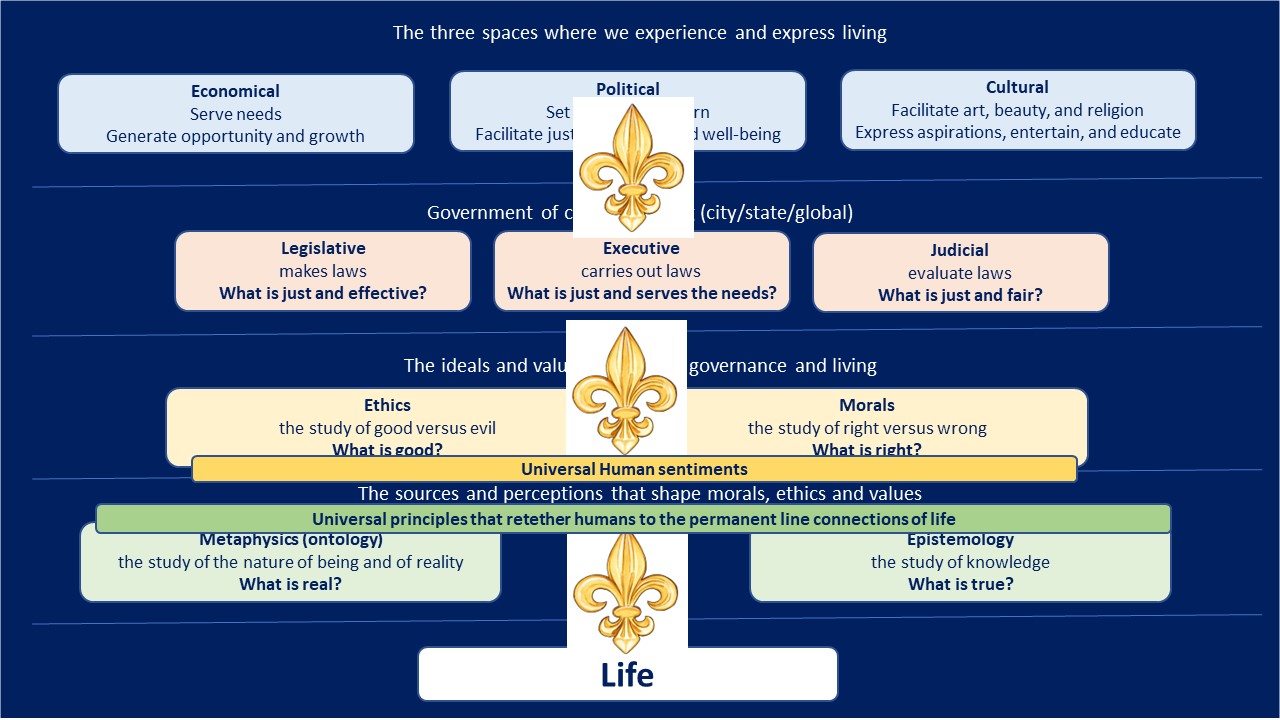
What metaphysics, philosophy and epistemology grounded in life and its universal principles can we discover? How can we facilitate and co-create a rebirthing process in ourselves, with this sacred planet and the universe at large? What are the ways to honor perennial wisdom and bring to life new and latent capacities and capabilities activating now?
The sevenfold Epoch insight offers that with the Indigo–Violet increase, we cannot force back the modern Blue framework. Instead, as the “genie” of a new epoch is already out of the bottle, Blue must find its updating recast inside an Indigo–Violet ecology.
What this means and how we might be able to co-facilitate this emergence is the focus of our inquiry.
For example, it requires that we endeavor to evolve inside-out and outside-in and unlock all dimensions of development and transformation. It needs us to integrate and merge individual and collective transformations; it requires spiritual, cultural, socio-economic and political renewal, and it summons ethical and epistemic transformations, and more. It calls us to rediscover the sacred nature of our relationship not just with each other, but with the planet, the universe and the whole of life.
The question we confront is one of imagination and courage and the development of a true evolutionary communion. Can we dare to imagine a way for us humans to avert civilizational-eliminating trajectories by renewing our natural response to life? Can we find and co-create a healthier and wiser world that, deep inside, we know is possible?
What are the ecologies that naturally give rise and sustenance for these possibilities? What are the ingredients that facilitate and foster a robust ecology of transformation?
This urgent aspirational search is emerging globally with many communities. All over the world there are nascent experiments and arisings, exploring new ways of solving local problems, seeking to create local solutions, economic models and developmental, spiritual and cultural renewal. They are anchored in the universal values of human life, and the sacred sentiments that accompany life. These communities and networks are diverse. They use adjacent and different maps of meaning and language and focus on a variety of renewal opportunities.
They share a sense of big picture urgency and the realization that we cannot solve the challenges we face with the mindset and the toolset that created these crises.
This is perhaps the potential and significance of this epochal moment.
We continue to explore the emergence of the Indigo–Violet ecology through all of our Core Inquiries series and in Portals Into the Soul, the soul being the ultimate Indigo merging and transference agency.
Aviv Shahar with the Portals team.
